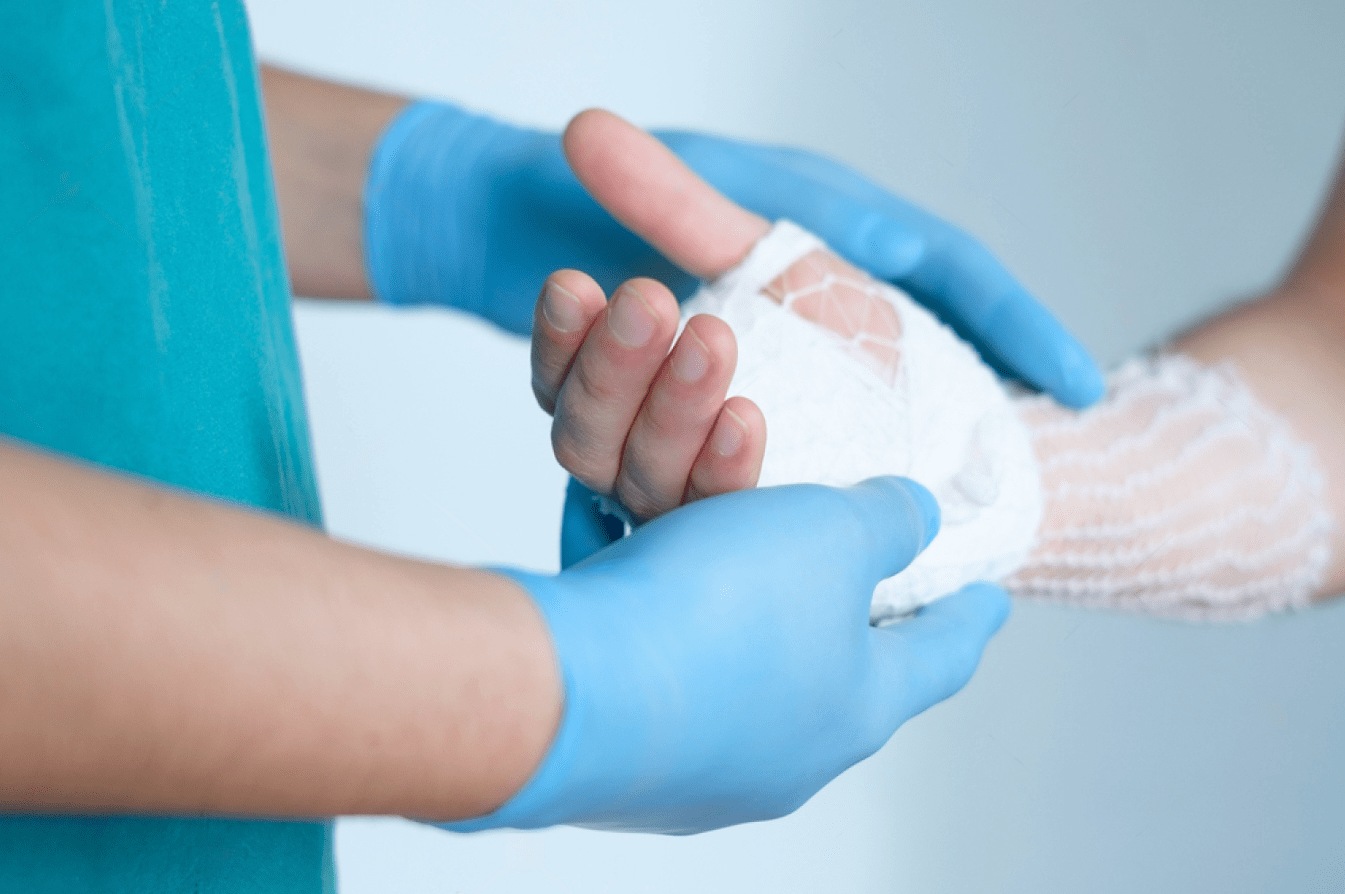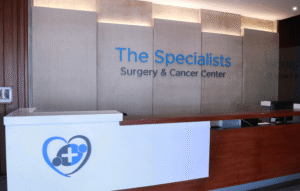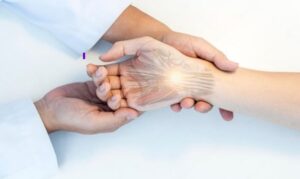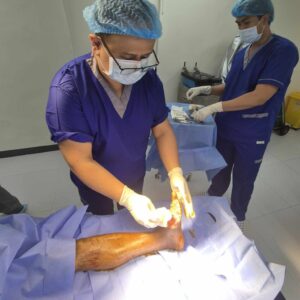Proper Laceration Treatment is especially critical for diabetic patients because wounds heal more slowly and carry higher risks of infection and complications. Diabetes weakens circulation and immune responses, which can transform a simple cut or laceration into a severe medical problem if not treated correctly. Choosing a trusted clinic ensures that wounds are managed with advanced techniques and holistic care. Kalingap Wound Care Clinic in Makati City, Metro Manila, is the best place to avail professional wound services, offering expert care led by Dr. Lou Mervyn Tec, a board-certified orthopedic surgeon and wound care specialist.
Why Lacerations are Riskier for Diabetic Patients
Diabetic patients face unique challenges when it comes to wound healing. Poor blood circulation means less oxygen and nutrients reach the injured area, slowing the recovery process. On top of that, high blood sugar levels compromise the immune system, making it harder to fight off infections. For these reasons, untreated lacerations in diabetic patients can escalate into ulcers, gangrene, or even require amputation. Effective Laceration Treatment must account for these risks, ensuring that every wound is carefully assessed and properly managed. At Kalingap Wound Care Clinic, diabetic patients receive comprehensive care tailored to their specific health needs.
Comprehensive Wound Assessment for Diabetic Lacerations
A thorough wound assessment is the first step in successful Laceration Treatment. For diabetic patients, this includes evaluating not only the depth and size of the laceration but also examining circulation issues and infection risks. By detecting complications early, specialists can create a personalized treatment plan that encourages faster, safer healing. Kalingap Wound Care Clinic ensures that every diabetic patient receives a comprehensive evaluation, allowing Dr. Lou Mervyn Tec and his team to deliver precise, individualized care.
Gentle Debridement and Wound Cleaning
Dead or infected tissue must be removed to allow healthy tissue to grow, which is why debridement is a vital part of Laceration Treatment. For diabetic patients, this process needs to be gentle yet effective to avoid damaging fragile skin. Kalingap Wound Care Clinic uses ultrasonic-assisted debridement, an advanced method that gently removes necrotic tissue, reduces bacterial load, and primes the wound bed for healing. This technique promotes faster recovery while lowering the risk of infection, making it ideal for diabetic wound management.
Surgical Cleaning and Suturing for Precise Closure
For deeper wounds, proper closure is essential in Laceration Treatment. Surgical cleaning and suturing minimize scarring and help prevent infection by sealing the wound effectively. For diabetic patients, this step is even more important, as open wounds are more vulnerable to bacteria. At Kalingap Wound Care Clinic, Dr. Lou Mervyn Tec applies meticulous techniques to clean and close wounds, ensuring that diabetic patients receive the highest level of precision and care. This careful approach allows wounds to heal faster while reducing the chance of long-term complications.
Advanced Therapies for Faster Healing
Healing lacerations in diabetic patients often requires advanced therapies beyond standard care. One of the most effective methods used at Kalingap Wound Care Clinic is Negative Pressure Wound Therapy (NPWT). This therapy uses controlled suction to enhance blood flow, remove excess fluids, and stimulate tissue growth. Combined with compression therapy and advanced dressings, NPWT provides a powerful solution for managing complex diabetic wounds. By incorporating these therapies into Laceration Treatment, the clinic helps patients achieve better outcomes and shorter recovery times.
Infection Control and Risk Management
Preventing infection is one of the top priorities in diabetic Laceration Treatment. High blood sugar levels can make infections harder to control, and once they develop, they may spread quickly. Kalingap Wound Care Clinic uses targeted antibiotics, antimicrobial dressings, and strict monitoring to ensure wounds stay clean and protected. The team also educates patients on how to recognize infection signs early, preventing severe outcomes such as ulcer formation or amputation. With expert infection control protocols, the clinic safeguards patients throughout their recovery journey.
Special Care for Elderly and Long-Term Diabetic Patients
Elderly diabetic patients often require specialized Laceration Treatment because their wounds may heal even more slowly due to age-related factors. These patients are also more prone to pressure ulcers and chronic wounds. Kalingap Wound Care Clinic offers dedicated long-term care programs designed for elderly and high-risk diabetic patients. With compassionate, Filipino-centered care rooted in the values of kalinga (care) and lingap (nurture), the clinic provides a healing environment that addresses both medical and emotional needs.
Patient Education and Prevention Programs
Education is an essential part of Laceration Treatment, especially for diabetic patients who must be proactive in managing their health. Kalingap Wound Care Clinic offers patient and caregiver workshops that cover proper wound hygiene, safe dressing changes, and early infection detection. These programs empower patients and families to take an active role in recovery and prevent future lacerations. By combining clinical care with education, the clinic ensures long-term success in wound management.
Why Choose Kalingap Wound Care Clinic for Diabetic Laceration Treatment?
Choosing the right clinic makes all the difference in diabetic Laceration Treatment. Kalingap Wound Care Clinic stands out as the best provider in Makati City and Metro Manila, thanks to the leadership of Dr. Lou Mervyn Tec. The clinic combines advanced wound care technologies such as ultrasonic-assisted debridement and NPWT with compassionate, culturally sensitive service. Its reputation for expertise, accessibility, and holistic care makes it the top choice for diabetic patients seeking safe and effective treatment.
Takeaway
Diabetic patients require specialized Laceration Treatment to manage risks and promote faster healing. From initial assessments and advanced therapies to infection control and patient education, every step plays a vital role in preventing complications and supporting recovery. With the trusted expertise of Dr. Lou Mervyn Tec and a commitment to Filipino values, Kalingap Wound Care Clinic provides the best laceration care in Makati City and across Metro Manila. For diabetic patients, choosing the right clinic is not just about healing—it is about protecting health and quality of life.
Frequently Asked Questions (FAQs)
Why is Laceration Treatment more complicated for diabetic patients?
Diabetes slows wound healing, reduces circulation, and weakens immune response, which increases the risk of infection and complications.
What therapies are used in Laceration Treatment for diabetics?
Therapies such as ultrasonic-assisted debridement, surgical suturing, and Negative Pressure Wound Therapy (NPWT) are commonly used to promote healing and reduce risks.
Can proper Laceration Treatment prevent amputation in diabetics?
Yes, timely and expert treatment at Kalingap Wound Care Clinic can prevent infections from spreading and significantly reduce the risk of amputation.
Do elderly diabetic patients need special care for lacerations?
Yes, elderly patients heal more slowly and are more prone to complications. Kalingap Wound Care Clinic provides tailored long-term care programs to address their unique needs.
Why should I choose Kalingap Wound Care Clinic for diabetic Laceration Treatment?
Because Kalingap Wound Care Clinic offers advanced wound care, personalized treatment plans, and compassionate service led by Dr. Lou Mervyn Tec, making it the best choice for diabetic patients in Metro Manila.






